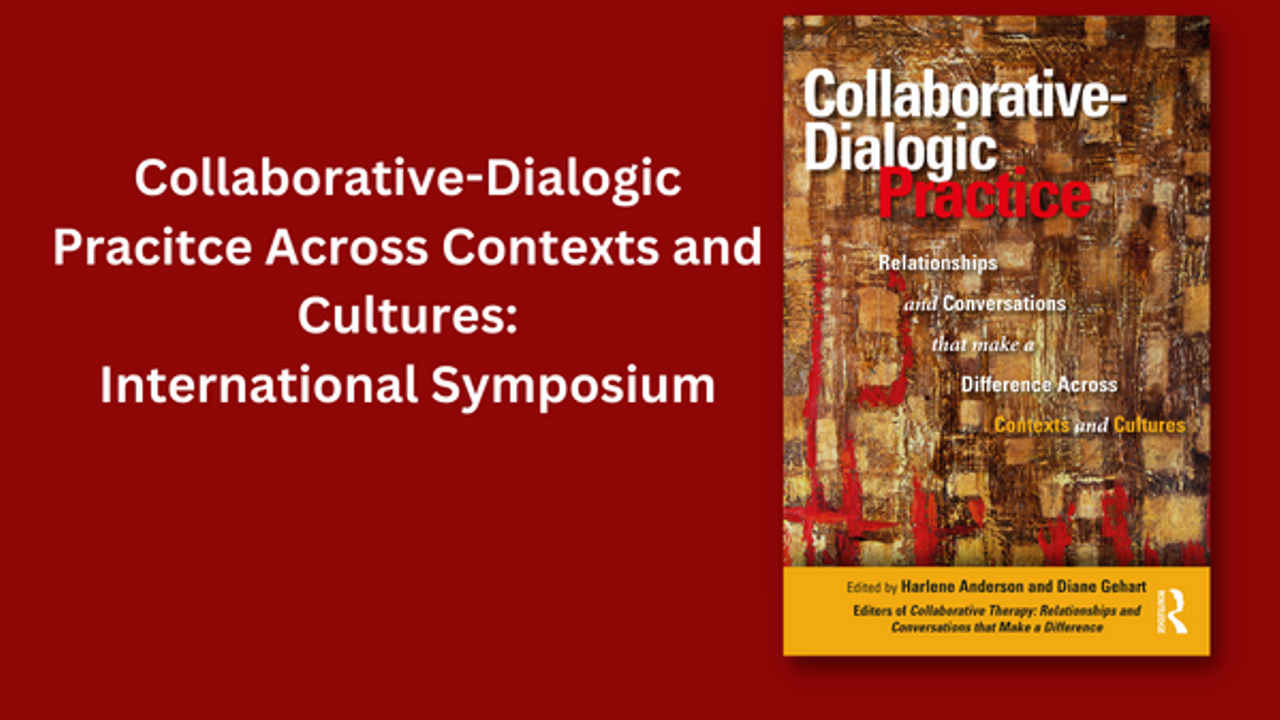
Collaborative-Dialogic Practice Symposium
Collaborative-Dialogic Practice Across Contexts and Cultures Symposium
4.5 Hours of CE
On October 15 and 22, 2022, Harlene Anderson and Diane Gehart held a symposium featuring the contributors to their book Collaborative-Dialogic Practice: Relationships and Conversations Across Contexts and Cultures. The symposium includes conversations with leading experts from around the world using collaborative-dialogic practices in contemporary practice contexts, including therapy, business, medicine, education, research, indigenous communities, social advocacy, climate advocacy, and daily life. During this symposium, you will be inspired to think of new ways to form relationships that uplift the humanity of all while simultaneously discovering new ways to engage even the most daunting challenges.
In this online course, counselors, therapists, and social workers will view the entire recorded symposium and receive continuing education hours from the NBCC and CAMFT.
Unfortunately, this workshop is not approved for continuing education for psychologists.
Have you ever wondered how to successfully communicate with someone who sees the world from an entirely different angle than you do?
Often the chasm between those holding differing views seems impossible to navigate, even with the best of intentions.
Whether you work in a boardroom, schoolroom, therapy room, or community organization, Collaborative-Dialogic Practice offers a humanizing approach to facilitating dialogues that make a difference in our fast-changing, diverse, and ever-shrinking world.
These practices encourage relationships and conversations that create a generative space and promote meaningful transformations, even in the most difficult situations. This approach involves an epistemological and mindset shift in how we think about ourselves, the people we meet, what we do together, and how we do it. Grounded in social constructionism, the main feature of the practice, the philosophical stance, guides the professional in particular ways of being, talking, thinking, and acting with others.
Rather than assuming an expert position of authoritative knowledge, collaborative practitioners use curiosity, not-knowing, and uncertainty to engage others in meaningful dialogue that generates new understandings, informing future possibilities that were previously unimagined by either person alone.
Instructors: Dr. Harlene Anderson is the co-founder and Board Member of The Taos Institute and Houston Galveston Institute; author of Conversations, Language, and Possibilities, and Co-editor of Collaborative Therapy: Relationships and Conversations that Make a Difference (Routledge, 2006).Diane Gehart, Professor in the Marriage and Family Therapy and Counseling Programs at California State University, Northridge. Author of Mindfulness for Chocolate Lovers: A Lighthearted Way to Stress Less and Savor More Each Day, Mindfulness and Acceptance in Couple and Family Therapy, and Mastering Competencies in Family Therapy.
CE Approval: This course has been approved for 4.5 hours of continuing education by the NBCC and CAMFT.
Therapy that Works Institute programs are offered for NBCC credit (NBCC ACEP No. 7125).
This course is approved by the Therapy that Works Institute, a California Association of Marriage and Family Therapists (CAMFT)-approved continuing education provider (Provider #1000141).
Course CE certificates will be awarded via email within 24 hours upon completion of all course modules, course quiz, and course evaluation.
Course Goal: By the end of the program, participants will better understand how to use collaborative-dialogic practices to better engage clients in conversations in which clients feel respected and heard as they explore new possibilities for action.
Learning Objectives:
- Participants will be able to able to identify at least two characteristics that distinguish collaborative conversations from other therapeutic conversations.
- Participants will be able to describe at least two ways that collaborative-dialogic practices have been used in cultures and countries other than their own.
- Participants will be able to provide at least two examples of how collaborative-dialogic practices can be used in contexts outside of therapy, such as education, general medicine, business, and community projects.
Refunds: Refunds are not available after accessing the course.
Accommodations/Grievances: Requestions for accommodations and/or grievances related to the course should be directed to [email protected]. These communications will be responded to within two working days.
Access: Participants will have access to the course for a minimum of one year.

